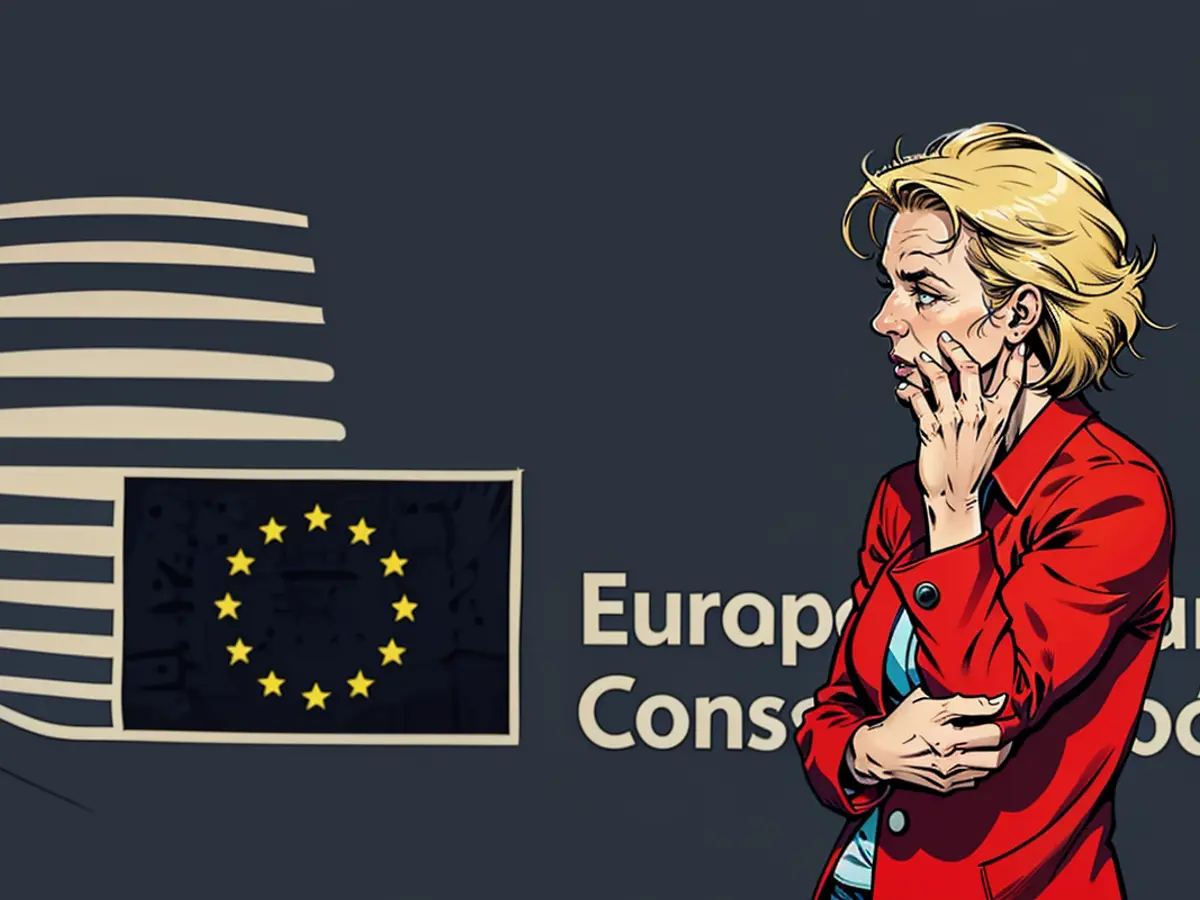Who should lead the EU
At the EU summit in Brussels, a formal decision on the new appointment of EU top posts is expected to be made on this Thursday and Friday. It is nearly certain that CDU politician Ursula von der Leyen will be nominated. Informal agreements have already been reached for two other candidates.
Commission President: Ursula von der Leyen
The CDU politician has been at the helm of the EU Commission for almost five years. In Brussels, it is considered nearly certain that the heads of state and government will propose the 65-year-old for a second term. The European People's Party (EPP) with the CDU and CSU is the strongest force in the European elections with von der Leyen as the Spitzenkandidat. The EPP, Social Democrats, and Liberals had agreed on the personnel package earlier in the week.
In her first term, von der Leyen acted as a crisis manager: first in the Corona pandemic, then in the Ukraine conflict. She presented the climate protection package "Green Deal" as a flagship project, with which she aims to make Europe the world's first climate-neutral continent by 2050. Under pressure from farmers' protests, she recently made cuts.
Before her move to Brussels, she was a seven-time mother and Federal Minister for Family, Labor, and Defense in Germany. After the European elections in 2019, the surprise coup: French President Emmanuel Macron pushed through von der Leyen as the new Commission President with the help of Chancellor Angela Merkel.
The EU Commission with over 30,000 civil servants is the most powerful European institution and proposes laws. It also ensures the observance of the rule of law and budget regulations and can impose antitrust fines against global corporations like Google and Microsoft. Von der Leyen has set up an office for herself on the 13th floor of the Commission building.
President of the European Council: António Costa
The successor of the Belgian Charles Michel is expected to be the former Portuguese Prime Minister António Costa. The Social Democrat describes himself as a pragmatic compromise man, and jigsaw puzzles are his hobby. This could help in the task as President of the European Council. He leads the summits of the EU heads of state and government and is often called upon as a mediator in conflicts.
The term of office is two and a half years, which can, as is usual, be extended to five years. The 17th of July 1961 born Costa held various government positions in Portugal and sat briefly in the European Parliament before becoming Minister-President in 2015.
Foreign Policy Chief: Kaja Kallas
The successor of the Spaniard Josep Borrell is expected to be the Estonian Prime Minister Kaja Kallas. The 47-year-old Liberal politician is the only Eastern European in this personnel lineup. She fights for a hard line against Russian President Vladimir Putin in the EU and is one of the biggest supporters of Ukraine. Originally, she wanted to become NATO Secretary-General but was considered too outspoken. In the Near East conflict, she follows a clearly balanced line compared to Borrell, who is perceived as pro-Palestinian.
In her homeland, Kallas is known as the "Iron Lady," despite her exterior having little in common with the former British Prime Minister Margaret Thatcher. The daughter of the former EU Commissioner and Estonian Prime Minister Siim Kallas was born on June 18, 1977, when her country was still part of the Soviet Union. After independence in 1991, she studied law, later joined both the national and European parliaments, and became the first woman to lead the Estonian government in 2021.
The EU does not have a real Foreign Minister because the member states view diplomacy as a primarily national task. Instead, there has been a "High Representative for Foreign and Security Policy" for approximately 15 years. He leads the European External Action Service (EEAS) with around 4500 employees and is also a member of the EU Commission.
- Charles Michel, previously the President of the European Council, will be succeeded by António Costa, the former Prime Minister of Portugal, as he is expected to be proposed for the position at this week's EU summit in Brussels.
- Kaja Kallas, the Prime Minister of Estonia, is expected to become the Foreign Policy Chief, taking over from Josep Borrell, as she has been chosen as the hard-line advocate against Russian President Vladimir Putin in EU politics.
- With Ursula von der Leyen, the CDU politician and Commission President, already certain to be nominated for a second term, the EU Commission, the most powerful European institution, will have a familiar face at its helm, guiding laws and budget regulations, and proposing antitrust measures against global corporations such as Google and Microsoft.








